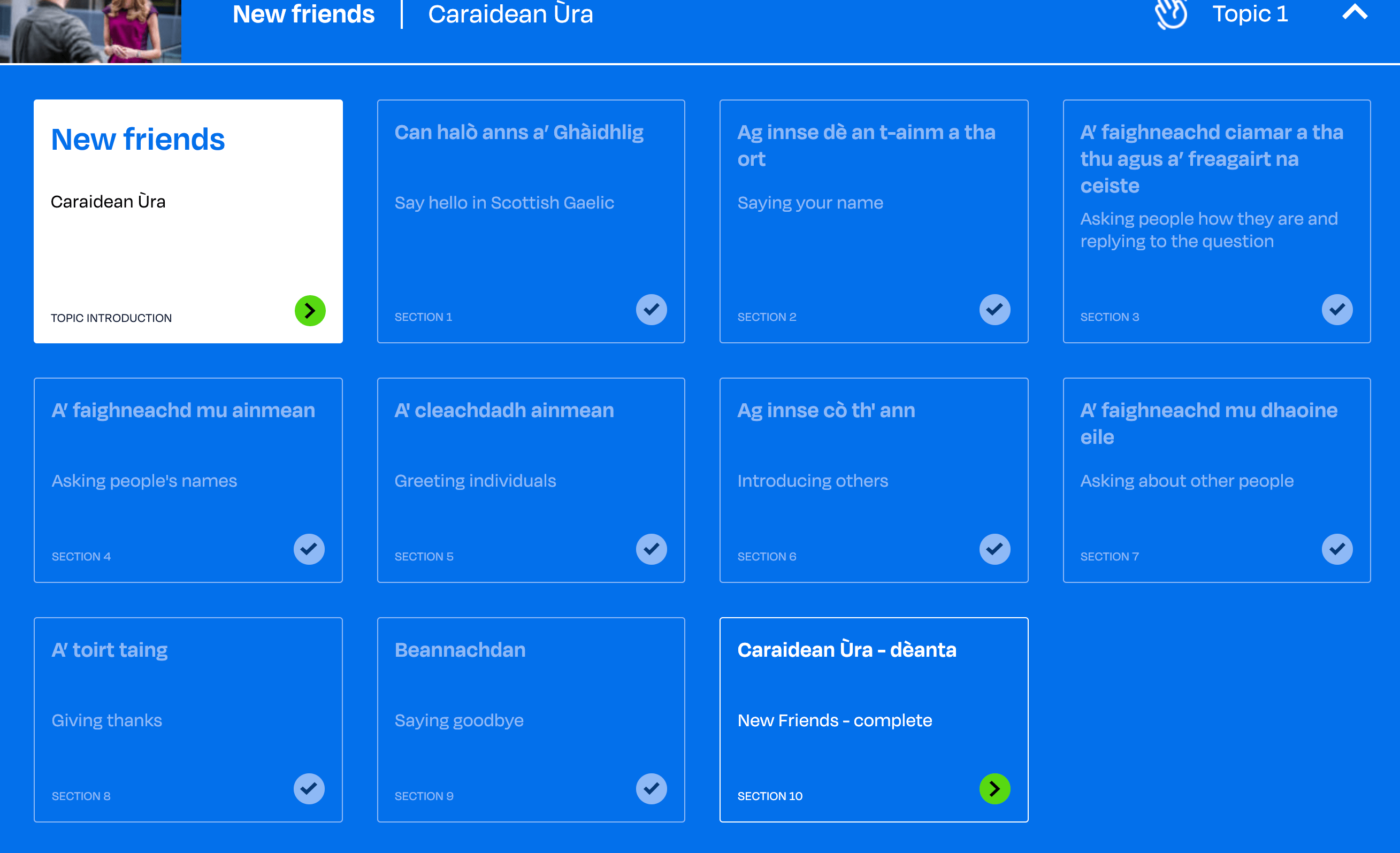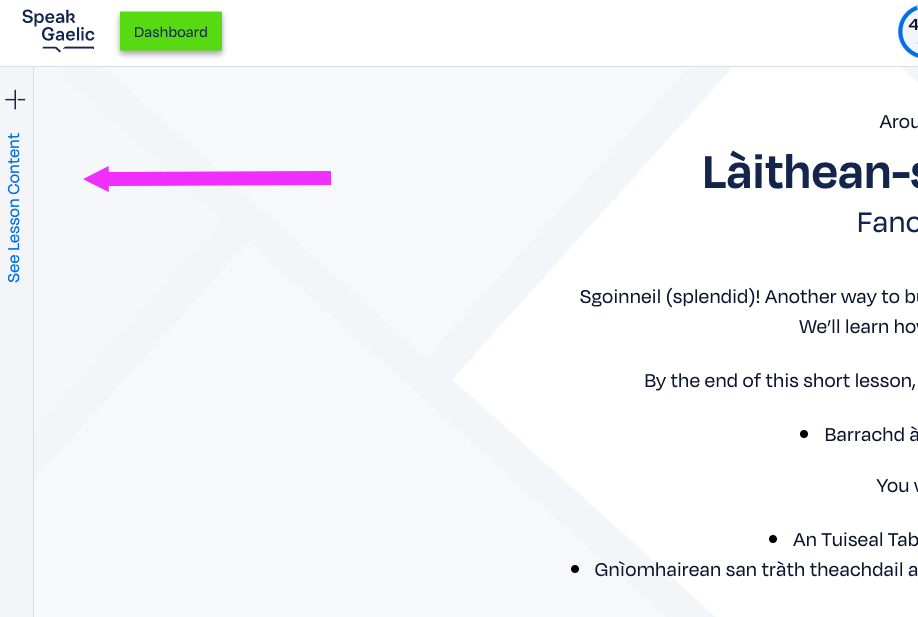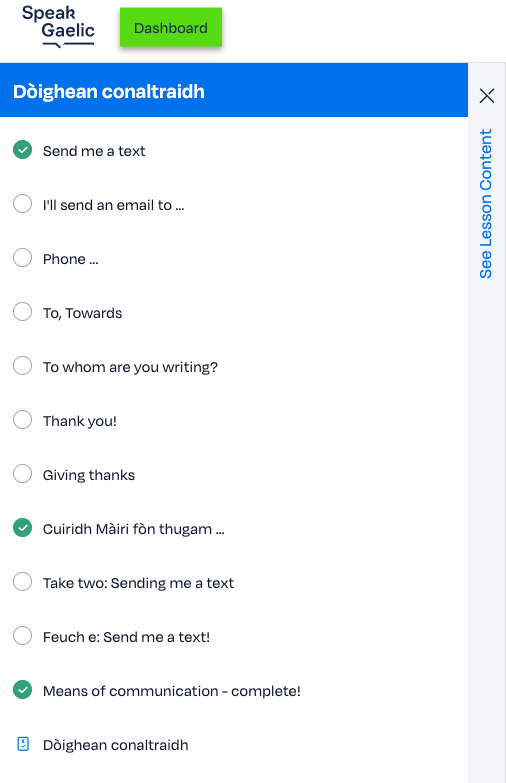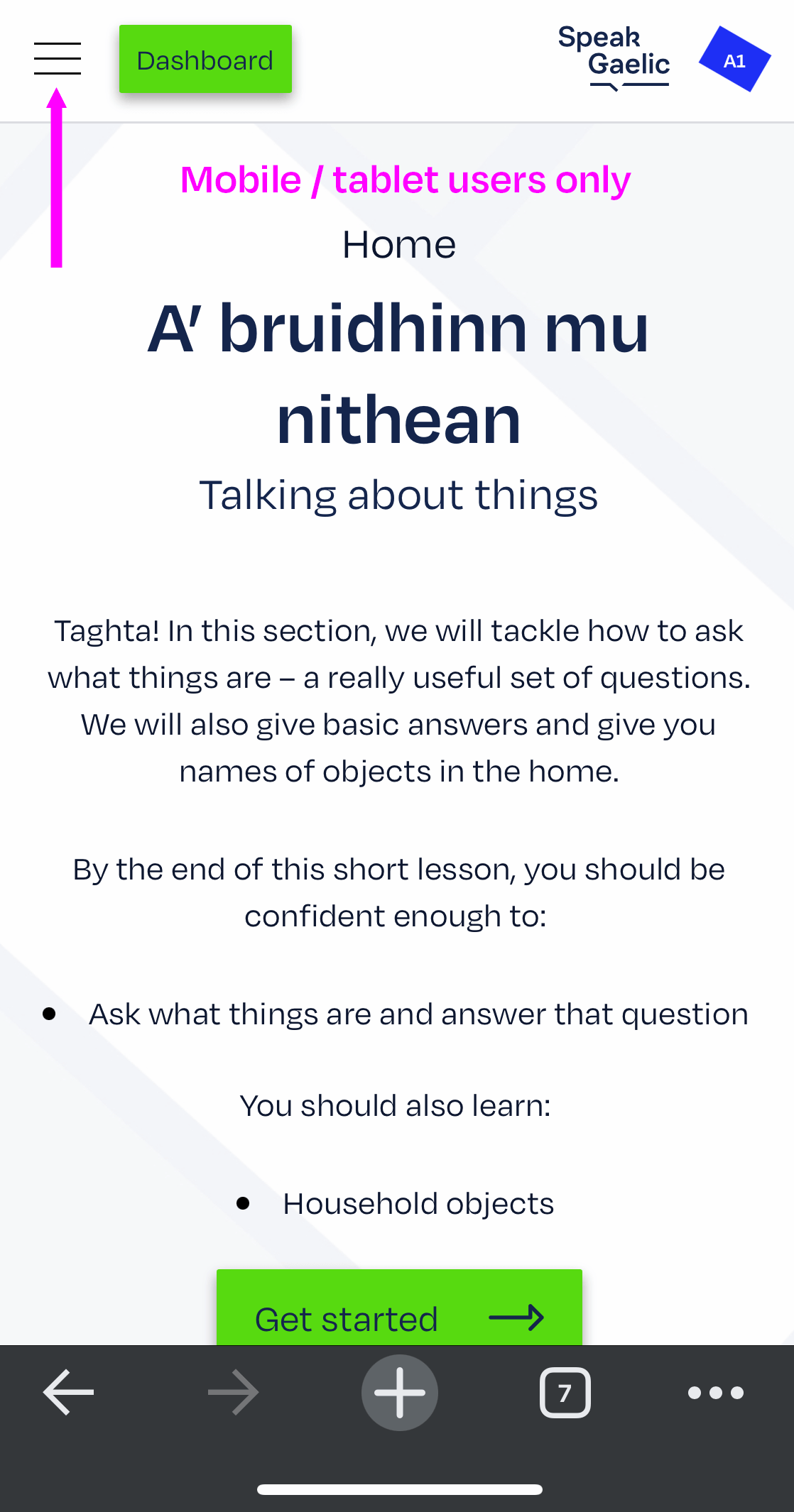Bilingual transcription: Cuin a ruigeas i?
Bilingual transcription: When will it arrive?
Watch this clip where Joy gives us some of her useful tips and favourite phrases.
JOY
On the west coast of Scotland and the Hebrides, we rely, for the most part, on aiseagan, ferries, aiseagan.
If, for example, you’re planning to cross to an island by an aiseag, you’ll want to know:
Cuin/a bhios i a’ seòladh? When does it sail or depart? Cuin a bhios i a’ seòladh?
And note that although some words for boats are masculine in gender, they’re referred to as feminine, always as i.
To complete your plans, you’ll also want to know when the ferry will arrive:
Cuin a ruigeas i? When will it arrive? Cuin a ruigeas i?
You could frame that question in a slightly different way by asking:
Dè cho fada ‘s a bheir i/a’ dol a‑null? How long
will it take to go over? Dè cho fada ’s a bheir i
a’ dol a‑null?
And you can ask the same question in the past tense by swapping bheir, will take, for thug, took:
Dè cho fada ‘s a thug i/a’ dol a‑null? How long
did it take to go over? Dè cho fada ‘s a thug i a’ dol a‑null?
If you’re on an island or just visiting, how about going fishing, iasgach? Iasgach.
Someone may ask you, or you could ask them:
Am bu toil leat/a dhol a dh’iasgach? Would you like to go fishing? Am bu toil leat a dhol a dh’iasgach?
You might go out in an eathar, a small boat,
eathar,
using a slat‑iasgaich, a fishing rod, slat‑iasgaich.
Nise, anns na h‑eileanan tha croit aig mòran dhaoine, a croft, croit.
Bidh croitearan, crofters,
croitearan ag obair
air a’ chroit, on the croft, air a’ chroit. But note that in some dialects you’ll hear air a’ chruit. Croit no cruit, cluinnear na dhà.
Often croitearan will keep stoc, livestock, stoc.
If someone has a working croft and keeps caoraich, sheep, caoraich, a couple of useful phrases you’ll hear are:
a’ trusadh nan caorach, rounding up or gathering the sheep, a’ trusadh nan caorach; and of course shearing the sheep:
a’ rùsgadh nan caorach, a’ rùsgadh nan caorach.




